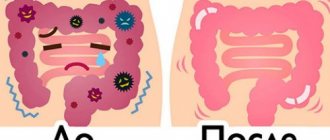For those who have chosen the path of yoga, sooner or later the question of proper nutrition arises, both in terms of physical and informational food, because without control over what we immerse ourselves in, it is impossible to advance on the path of spiritual self-improvement. As you know, Patanjali’s “Yoga Sutras” says that before starting the practice of yoga, one should establish oneself in the yamas and niyamas, that is, follow the moral precepts. The need to maintain physical and spiritual purity is indicated by the principle of shaucha, or purity. And this is no coincidence - our state directly depends on what we immerse ourselves in. For example, by eating the bodies of other living beings, we will load ourselves with the energy of death, fear and suffering. Is it worth it to be surprised that all this will come into our lives and our consciousness will be, to put it mildly, specific?
The same applies to information “hygiene”. If every day we watch some youth series with a primitive plot and a very negative message, it is not surprising that the motivations for our actions will be far from adequate. So, the need for hygiene at all levels is obvious. Giving up animal and other junk food and throwing out the TV from the house with the proper level of awareness is not so difficult, but another problem arises: how to cleanse the body and consciousness of the already accumulated ballast that will always pull us down? Cleansing practices can come to the rescue; one of the most effective is regular 36-hour fasting.
Preparing for a 36-hour fast
With the traditional type of nutrition - immersing ourselves in questionable foods, mixing incompatible components, etc. - our digestion works almost around the clock. Three meals a day - and, as a rule, with snacks - simply does not leave our gastrointestinal tract the opportunity to rest and cleanse. Therefore, at least once a month, and ideally once a week, you need to give your body the opportunity to take a break from digesting food and cleanse itself. Thus, a 36-hour fast once a week would be optimal.
Our digestive system is designed so that it can work in two modes: digestion of food or cleansing. And the moment food stops flowing into the stomach, the cleansing process begins: internal organs begin to process toxins accumulated over years of inadequate nutrition and remove them. Harmful substances can accumulate in our intestines for years and affect not only our body, but also our minds. It has been scientifically proven that microflora can influence our eating habits, way of thinking and even our choices in certain situations. For example, microflora grown on the abuse of sweets will continue to force a person to eat sweets. So addiction to sweets is nothing more than a desire for microbes in our gastrointestinal tract.
When practicing fasting, the intestines will be intensively cleansed, and toxins will enter the blood en masse, which can provoke very unpleasant sensations, ranging from nausea and headaches and even mental disorders. To prevent this from happening, it is recommended to cleanse the intestines of accumulated toxins before fasting. There are many different techniques, but the most effective of them is Shankha Prakshalana (more details about this practice can be found on the website). After such a powerful cleansing, you can safely begin fasting without fear of poisoning the body with the contents of your own intestines. In general, it is recommended to perform Shankha Prakshalana on a regular basis, once or twice a year, even with adequate nutrition. And if food addictions have not yet been overcome, then its implementation with some frequency is simply necessary.
Beneficial Effects of Fasting
The practice of fasting cleanses the physical body of accumulated toxins, but the positive effects do not end there. Much more important is its effect on the cleansing of our consciousness and energy body. Fasting is primarily a spiritual practice, so in addition to abstaining from food, you should also pay attention to spiritual cleansing. During fasting, it is advisable to limit contact with the outside world and devote time to reading spiritual literature, meditation and other spiritual practices. Fasting, which is limited to simply refusing food, will, of course, cleanse the physical body, but it will not transform a person at a deep level.
It is also important to limit the flow of negative information: do not watch TV, do not listen to music, etc. In this case, the practice of fasting will bring maximum effect, and time will not be wasted. It is worth noting that fasting is asceticism, and asceticism always gives a person a lot of additional energy, and it is important to “invest” it correctly. Sometimes difficulties arise with this, and after breaking the fast, the “pendulum” can swing in the other direction - the person will begin to overeat, which will negate all the benefits of the 36-hour asceticism. Therefore, it is important to know where and how you can constructively spend the accumulated energy.
CONSCIOUS NUTRITION – CONSCIOUS LIVING

People often ask me: “So what? What has changed in your life since switching to this type of nutrition? Then I answer them: “Conscious eating is a conscious life.”
It seems to me that if a person thinks about what he eats, how and how many times he eats, he will sooner or later think about other important issues. Learning to control your food intake is the first step in controlling your entire life.
36 hour water fast
The best option for fasting would be to abstain from food for 36 hours. Fasting for 36 hours is not very stressful for an unprepared body and at the same time allows you to cleanse yourself well. In addition to the cleansing process, the body rejuvenates - studies have shown that during fasting, special cells in the body, macrophages, are activated, which destroy pathogenic bacteria, dead cells, toxins and foreign elements in the human body. It should be noted that if you have any serious chronic diseases, dry fasting is contraindicated, but if there are no problems with the heart or kidneys, then 36-hour dry fasting will most likely not lead to any complications.
Fasting for a day and a half on water will cleanse and rejuvenate the body. As mentioned above, at this time it is better to engage in some kind of spiritual practices or simply useful activities, so that thoughts about food do not cause anxiety and the feeling of hunger is not so painful. Fasting is the best time to practice meditation, since the body is not busy digesting food and the energy does not drop to the level of manipura, which allows it to be raised higher.
Beginning and ending a 36-hour fast
A 36-hour fast should begin in the evening. In the evening, at the last meal, before starting fasting, it is better to refrain from heavy food and dine on raw vegetables. In the morning, on the day of fasting, you can do Shankha Prakshalana or at least use an enema to cleanse the intestines. The way out of fasting should also be without heavy food - fruits, vegetables, cereals, juices. And most importantly, if you have already completed the cleansing process, you should not return to your previous type of diet. And of course, animal food should be excluded, since even regular fasting will not help with the problems associated with meat eating - the physical body will be destroyed, and the consciousness will function in a very specific way. It is important to remember that it is clean not where they clean, but where they do not litter. 36-hour fasting can be introduced into your life as a regular practice - once a week. In this way, the body will be regularly cleansed, which will solve many health problems.
Fasting 36 hours: benefits
The effectiveness of fasting in the treatment of diseases in modern medicine has been confirmed by psychiatrist, Professor Nikolaev. While observing his patients suffering from schizophrenia, he came to the curious conclusion that during an exacerbation, most patients refuse food. The professor decided not to interfere in this process and not to force feed the patients, but to observe what would happen next. The results of such a study were shocking - in those patients who refused food, the exacerbation phase of the disease passed many times faster and easier than in those whom doctors continued to feed against their will.
Professor Nikolaev decided to continue his research and applied the technology of fasting treatment for diseases such as schizophrenia, manic-depressive syndrome, depression and others. The results were simply incredible - the patients’ symptoms not only of mental disorders, but also of concomitant diseases disappeared. For a number of reasons, it was decided to stop these studies, since this treatment method was unprofitable for modern medicine and pharmacological corporations. But each of us can check the effect of fasting from our own personal experience. A 36-hour fast is more of a preventive practice than a therapeutic one, since deep cleansing of the body at the physical level, and especially at the subtle level, does not occur.
However, even such a short abstinence from food is a powerful tool for human health, allowing you to remove toxins from the body, the appearance of which is associated with an unhealthy lifestyle, poor nutrition, poor environment, taking medications, etc. Also, the presence of toxins in the human body forces the body to waste a huge amount of energy to free yourself from them. Therefore, by getting rid of toxins through fasting, a person becomes more energetic. Regular practice will help keep the body clean and avoid many health problems, and in the future, get rid of existing ones.

The benefits of dry fasting for 36 hours, how to do it correctly?
In this article you will learn:
First, let's talk about the immediate benefits of hunger for humans. After all, motivation is one of the key points in this practice. Proper motivation and clear knowledge of all the pros and cons of fasting can greatly help you avoid relapse. And believe me, this will be useful to you.
How does fasting affect the human body? In our body, along with a huge number of different processes, there is a mechanism for cleansing toxins. Thanks to it, our body gets rid of harmful substances that get inside and have a negative impact on its functioning.
But unfortunately, the current realities of life are such that people stuff their bodies with such a huge mass of toxic substances that our cleansing mechanism simply cannot cope. And this is where another ability of the human body comes into play - encapsulation.
Encapsulation is the process of preserving toxic substances at specific points in the body to prevent them from entering the bloodstream. And with every intake of junk food, pills, alcohol or nicotine, these accumulations are replenished.
At one “wonderful” moment, the amount of toxins reaches a critical mass, and the body begins to forcibly get rid of the excess. This is accompanied by high fever, production of sputum and mucus, and sweating. Unfortunately, this is not a panacea, and over time this process will become more and more difficult, because our body will not be able to get rid of all the garbage at once.
Exit
The right way out, like the right way in, is to minimize the risk of complications and ensure consistency of results.
- The morning after fasting, eat a salad of fresh vegetables seasoned with olive oil.
- For 2 days you can only eat vegetables (fresh, boiled, stewed) and fruits. Meat, eggs and dairy products are prohibited.
- During the week you should not eat fatty, fried, pickled, salted or smoked foods.
- Fast food, snacks, and alcohol are introduced into the diet last and in minimal quantities. If the goal is to regularly cleanse the body and maintain a normal weight, you are allowed to use them no more than once a week.
- The most important rule is not to overeat or indulge in unhealthy foods.
The easiest way to get out of the one-day option is when the body has not yet had time to rebuild at the cellular level. 1-2 days will be enough for this. In other cases, it may take weeks.
Water fasting is an effective and useful technique for losing weight and healing the body. However, in terms of difficulty level it is not suitable for everyone. So it’s better from the very beginning to objectively assess your capabilities and strengths, whether you can withstand it, so as not to worry about a breakdown later.
On the topic: “Intermittent (periodic) fasting.”
Benefits and harms

Benefit
- Digestion improves, intestinal microflora is normalized;
- immunity increases;
- weight loss;
- aging processes slow down;
- the walls of blood vessels are strengthened, blood circulation improves;
- the brain receives a sufficient amount of oxygen, which helps to increase mental and creative activity;
- life expectancy increases;
- heart function improves.
It is believed that fasting on water alleviates the symptoms of gastrointestinal diseases and chronic pathologies and serves as a preventive measure for them.
Harm
Not everyone can handle it due to side effects. For some, they are detected as early as the afternoon. Others start complaining on day 2 or 3. Among the most common:
- weakness, lethargy, decreased performance, drowsiness;
- dizziness, fainting, spots before the eyes;
- headache;
- irritability, bad mood;
- nausea;
- abdominal discomfort, diarrhea, heartburn;
- whitish-gray and odorous coating on the tongue;
- unpleasant odor from the mouth and body.
If the side effects are pronounced, last more than 6 hours and disrupt the usual rhythm of life, this indicates that the body is not coping with the test. Perhaps you were poorly prepared or ignored contraindications. Try to exit smoothly and take mistakes into account next time.
If all these symptoms are tolerable and you can withstand them, try not to end the fast. You will see: each time there will be fewer and fewer of them.











